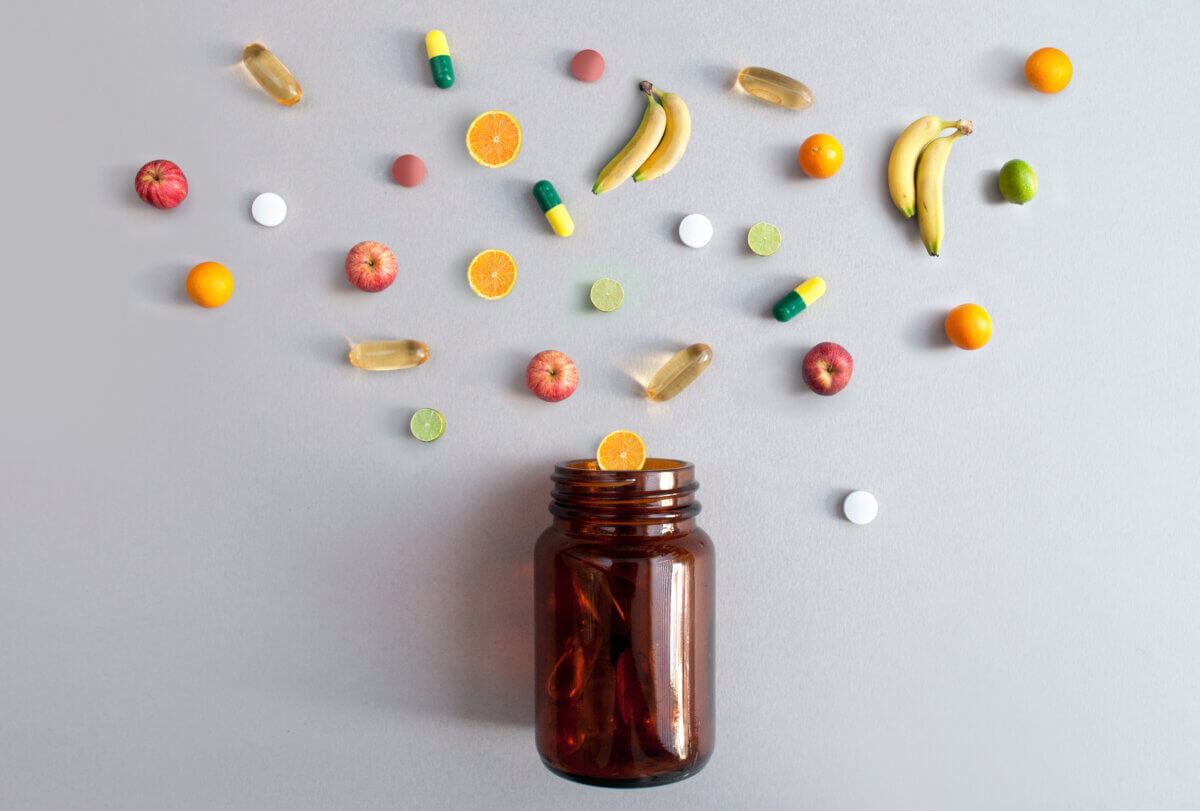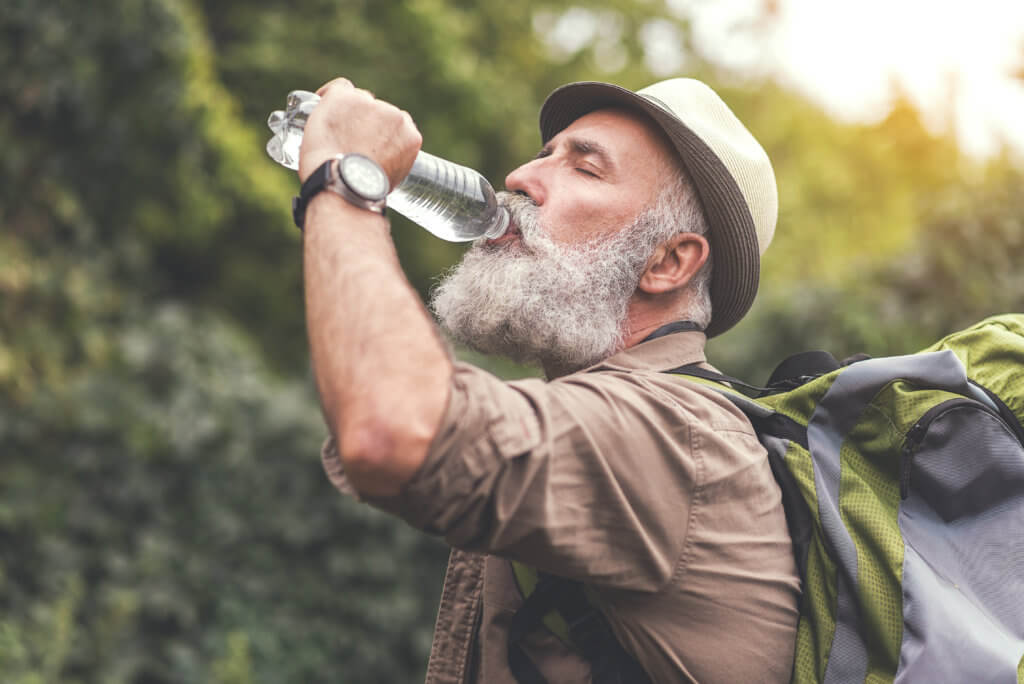Since childhood, you’ve probably heard an infinite number of medical opinions from your parents and everyone else who likes to play doctor. So, which advice is actually worth taking and which is just an old myth worth forgetting? StudyFinds is taking a look at some of the common medical myths out there, from walking around with wet hair to the importance of taking multivitamins every day, no matter how healthy you are.
1. You’ll catch a cold if you go outside with wet hair in cold weather.
The science: NOT TRUE, although you might get uncomfortable. If you do get sick, it isn’t your wet hair and cold weather that caused your illness.
Viruses transmitted through body fluids cause colds, influenza, and COVID-19. To become infected, you need to encounter virus particles suspended in the fluids. That happens when people who are sick cough, sneeze, or blow their noses.
To avoid getting sick, family medicine experts advise:
- Wash your hands with soap and water, often. If those aren’t available, use an alcohol-based hand sanitizer.
- Disinfect your environment. Sanitize your kitchen and bathroom, especially if someone in the household is sick.
- Use tissues for sneezing and coughing, quickly discard the tissue, then wash your hands. Coughing into the crook of your elbow is better than spraying germs everywhere, but not much.
- Don’t share drinking glasses or utensils.
- Stay away from people who are sick.
- Get enough sleep, eat well, and exercise. Take care of yourself.
2. Drinking cranberry juices cures urinary tract infections.
The science: Urinary tract infections (UTIs) are common; 60 percent of women will have at least one UTI during their lifetime. It’s a common belief that drinking cranberry juice or taking cranberry supplements can prevent and cure UTIs.
Clinical studies on the effectiveness of cranberry products on UTIs have conflicting results. Some studies found cranberries were effective at preventing and curing UTI’s, but just as many studies found no benefit. There is also inconsistency in the amount of active ingredients in various products.
“There is an active ingredient in cranberries that can prevent adherence of bacteria to the bladder wall, particularly E. coli,” says urologist Courtenay Moore, MD, at the Cleveland Clinic in a statement. “But most of the studies suggest that juice and supplements don’t have enough of this active ingredient (A-type proanthocyanidins) to prevent bacteria from sticking to the urinary tract.”
Dr. Moore notes that the American Urological Association’s guidelines state that healthcare providers may offer cranberry prevention, and there is little risk associated with using the supplements. She says women should do three things to prevent UTIs:
- Prevent UTI’s after sex. Frequency of sexual activity, multiple partners, and a history of sexually transmitted infections (STIs) increase your risk of UTIs. A woman should empty her bladder after sex. If you’re prone to recurrent UTIs, Dr. Moore advises against using spermicides or barrier contraceptives (like a diaphragm). She will sometimes recommend a single dose of an oral antibiotic to take before or after sex.
- Improve bowel habits. With constipation and diarrhea, bacteria from the bowel may enter the urinary tract, causing UTIs. If bowel habits are an issue for you see your primary care provider.
- Post-menopausal women with recurrent UTIs may benefit from a vaginal estrogen product and probiotics. Menopause changes bacterial colonization of the vagina. Topical estrogen normalizes postmenopausal vaginal pH, enabling the growth of “good bacteria” (lactobacillus) taken in the form of probiotics. “You want more healthy bacteria so less bad bacteria can adhere to the vagina,” says Moore.
3. Everyone should take a multivitamin supplement daily.
The science: The United States Preventive Services Task force (USPSTF) issued its current recommendations on vitamin supplements in June 2022. Scientists analyzed multiple studies and associated data on vitamin supplements to form the final recommendations. According to the results, the USPSTF concludes that current evidence is insufficient to assess the balance of benefits and risks of using multivitamin supplements.
If you are concerned about your diet’s adequacy to provide sufficient essential nutrients, discuss it with your primary care provider and consider consulting a registered dietician.

4. You need to drink 8 glasses of water every day.
The science: Karyn Eilber, MD, a board-certified urologist and associate professor of urology & OB/GYN at Cedars-Sinai Hospital in Los Angeles, says that while it isn’t good to be chronically dehydrated, being over-hydrated just increases urination, and extreme water intake is associated with dangerous electrolyte dilution. A low sodium level can trigger seizures.
There is no science to back up the eight glasses of water per day belief. Thirst should guide your water intake. Urine color can also indicate hydration. It should be pale yellow. Darker urine with a strong odor indicates dehydration.

– stock.adobe.com)
5. You need 10,000 steps per day to increase your longevity.
The science: A goal of 10,000 steps per day is often cited as necessary to improve longevity. However, there are health benefits even if fewer than 10,000 steps are taken daily. A step count of 4000 per day, which is common in the United States, is considered low activity.
Compared with people who took 4,000 steps a day, those who took 8,000 steps per day had a 50-percent lower risk of dying from any cause. People who took 12,000 steps a day had a 65-percent lower risk of dying than those who took just 4,000 steps.
People with higher step counts had lower rates of death from heart disease and cancer. Step intensity did not affect the risk of mortality once the total number of steps per day was considered. The total number of steps is the important factor in determining the benefits achieved.
You might also be interested in:
- Fact or Fiction: 10 Common Beliefs About Vaccines Explained
- Best Children’s Multivitamins: Top 5 Products Most Recommended By Experts
- The myth is true: Cranberries stop UTIs from coming back, new review finds
- Forget 10,000: Every 500 steps seniors take reduces their risk of heart problems


Regarding the article’s cranberry juice claim:
https://www.news-medical.net/news/20230421/Review-confirms-that-cranberry-products-help-prevent-urinary-tract-infections.aspx
Perhaps a minor revision to your article would be appropriate.
Respectfully
Bob A. There is a paragraph that states that the American Urological Association guidelines include offering cranberry products for prevention.